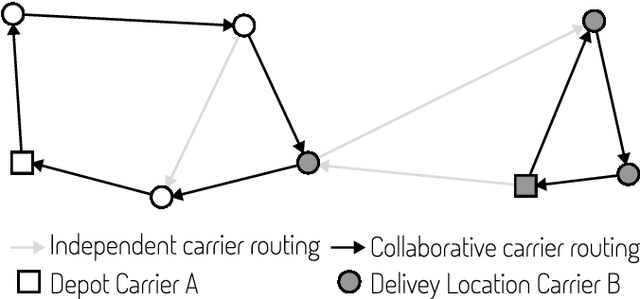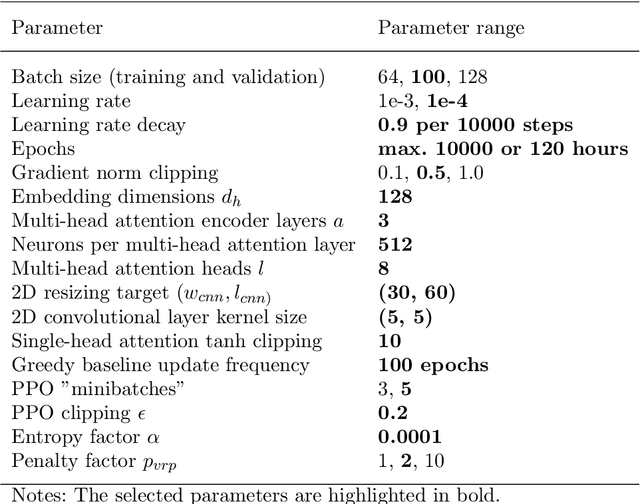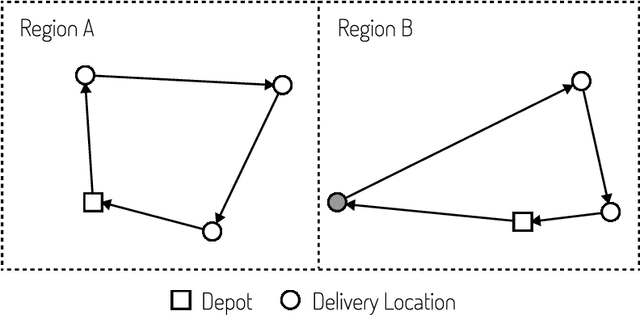Julian Senoner
Unlocking Carbon Reduction Potential with Reinforcement Learning for the Three-Dimensional Loading Capacitated Vehicle Routing Problem
Jul 22, 2023



Abstract:Heavy goods vehicles are vital backbones of the supply chain delivery system but also contribute significantly to carbon emissions with only 60% loading efficiency in the United Kingdom. Collaborative vehicle routing has been proposed as a solution to increase efficiency, but challenges remain to make this a possibility. One key challenge is the efficient computation of viable solutions for co-loading and routing. Current operations research methods suffer from non-linear scaling with increasing problem size and are therefore bound to limited geographic areas to compute results in time for day-to-day operations. This only allows for local optima in routing and leaves global optimisation potential untouched. We develop a reinforcement learning model to solve the three-dimensional loading capacitated vehicle routing problem in approximately linear time. While this problem has been studied extensively in operations research, no publications on solving it with reinforcement learning exist. We demonstrate the favourable scaling of our reinforcement learning model and benchmark our routing performance against state-of-the-art methods. The model performs within an average gap of 3.83% to 8.10% compared to established methods. Our model not only represents a promising first step towards large-scale logistics optimisation with reinforcement learning but also lays the foundation for this research stream.
Addressing distributional shifts in operations management: The case of order fulfillment in customized production
Apr 24, 2023



Abstract:To meet order fulfillment targets, manufacturers seek to optimize production schedules. Machine learning can support this objective by predicting throughput times on production lines given order specifications. However, this is challenging when manufacturers produce customized products because customization often leads to changes in the probability distribution of operational data -- so-called distributional shifts. Distributional shifts can harm the performance of predictive models when deployed to future customer orders with new specifications. The literature provides limited advice on how such distributional shifts can be addressed in operations management. Here, we propose a data-driven approach based on adversarial learning and job shop scheduling, which allows us to account for distributional shifts in manufacturing settings with high degrees of product customization. We empirically validate our proposed approach using real-world data from a job shop production that supplies large metal components to an oil platform construction yard. Across an extensive series of numerical experiments, we find that our adversarial learning approach outperforms common baselines. Overall, this paper shows how production managers can improve their decision-making under distributional shifts.
 Add to Chrome
Add to Chrome Add to Firefox
Add to Firefox Add to Edge
Add to Edge